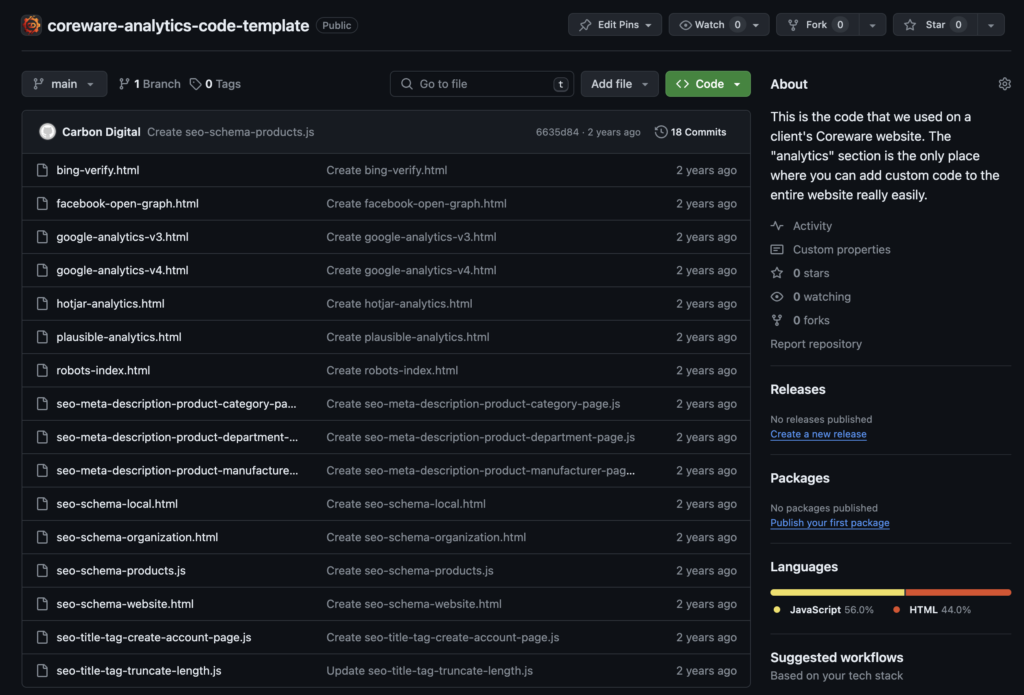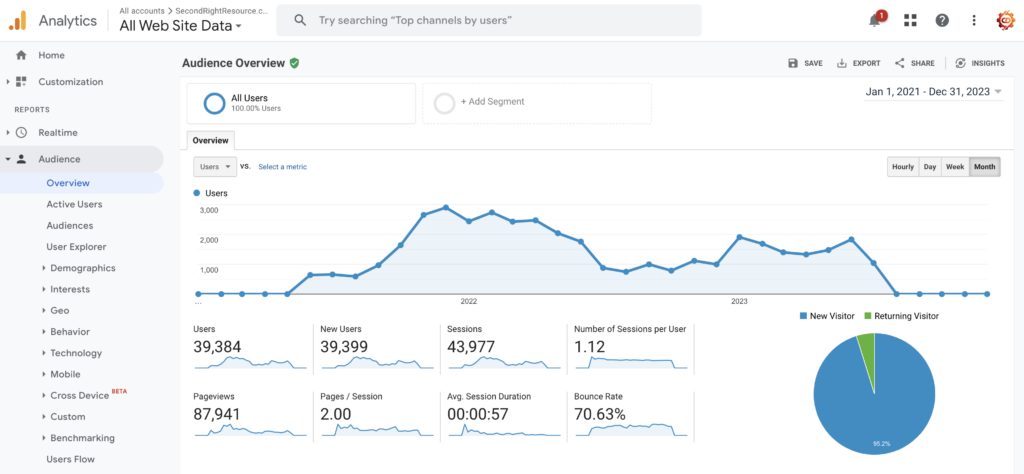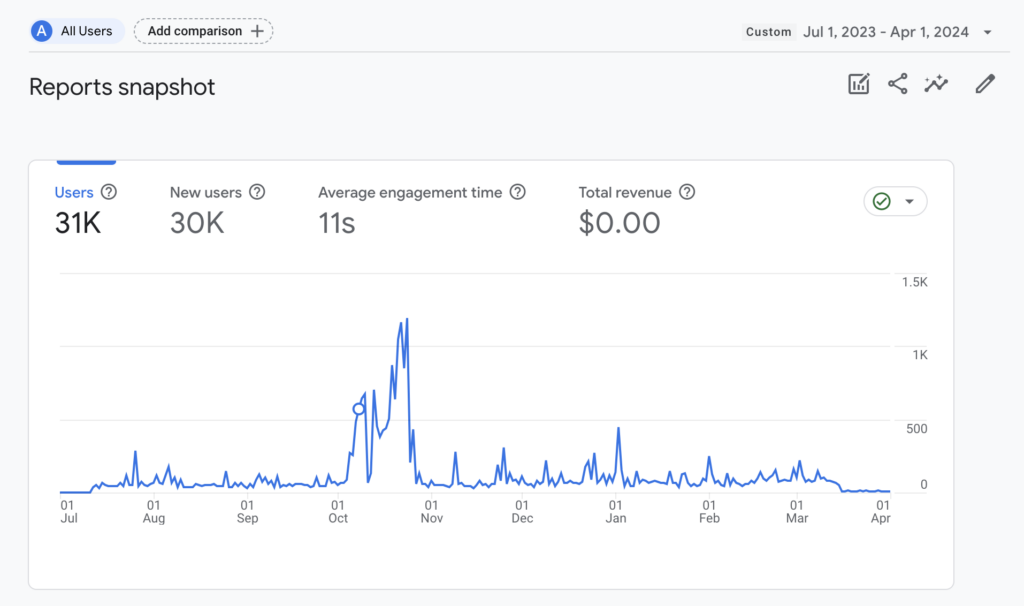
In late May 2021, we were contacted about their SEO. Another SEO agency sent them a report and tried to pitch them, and they reached out to us instead. After reviewing the report, and conducting our own SEO audit, we informed them about the gravity of the situation. The reality was that their website had about 20% of all required technical SEO code requirements. A few days later we entered into a 12-month contract for SEO upgrades.
Their Point-of-Sale (POS) system was with Coreware, who also had a website platform that integrated with their POS system. While this was great for convenience, it didn’t have the same impact on SEO.
After an extensive audit, we began the process of improving the client’s SEO. We quickly discovered that the platform was missing too many features to effectively launch an SEO campaign. We submitted a large volume of tickets attempting to identify how to make specific updates in their platform. This large volume of tickets, with supporting SEO data, caught the attention of the CEO and CTO.
We setup a meeting with the CTO of Coreware to discuss their SEO-based shortcomings. The end results was that they would try to update their platform, but in reality that they are “ecommerce people, not SEO people”.
We quickly took this as a challenge and found a place to write custom code for the website. Over the course of the next 90 days, we wrote custom JavaScript code to automate much of their SEO, but using existing content on the page. This led us to build a GitHub repo, where we’ve made all of this code public.

In the Google Analytics screenshot, you can see that our efforts were not in vain. Our client’s website was the fastest growing website on the entire Coreware platform, and had roughly 80k products in their store. The website’s traffic grew so much, that the CEO contacted us to provide quotes for the platforms top 3 largest customers.
Our internal data shows that we fixed 797,588 errors. and generated over 39k visitors.

In early 2022, the project ended because the business owner decided to sell the company. In the summer of 2022 the business was sold, and by the end of 2022 the business closed. They also forgot to shut down their website.
Since we stopped working on the project, none of the SEO has been changed. We know this because our Google Analytics account is still actively tracking data.
You can see below that July 1, 2023 – April 1, 2024, our efforts garnered an additional 30k+ visitors. We only wish that our efforts here were not going to an abandoned website.

The Second Right Resource project was for a WordPress website. We were brought in for web development.
This was a rather unique situation. It’s an ecommerce store in the firearm industry, and Shopify had just shut their store down. So, we were pressed for time to not only get a website back up, but also to not lose traction on the current customer base.
To top it all off, we had to work with EcomDash and Inovio Payment Gateway to setup all of their specific integration requirements. For reference, the EcomDash system and the Inovio payment gateway aren’t widely utilized systems. Which turned out to be much more of a complicated task than we initially recognized.
The project took about 45 days to get the site back up and running. Which was mostly due to these custom integrations. Were it not for these necessities, the project would’ve been done within three weeks.
Copyright © 2017-2025 · Carbon Digital · All Rights Reserved.